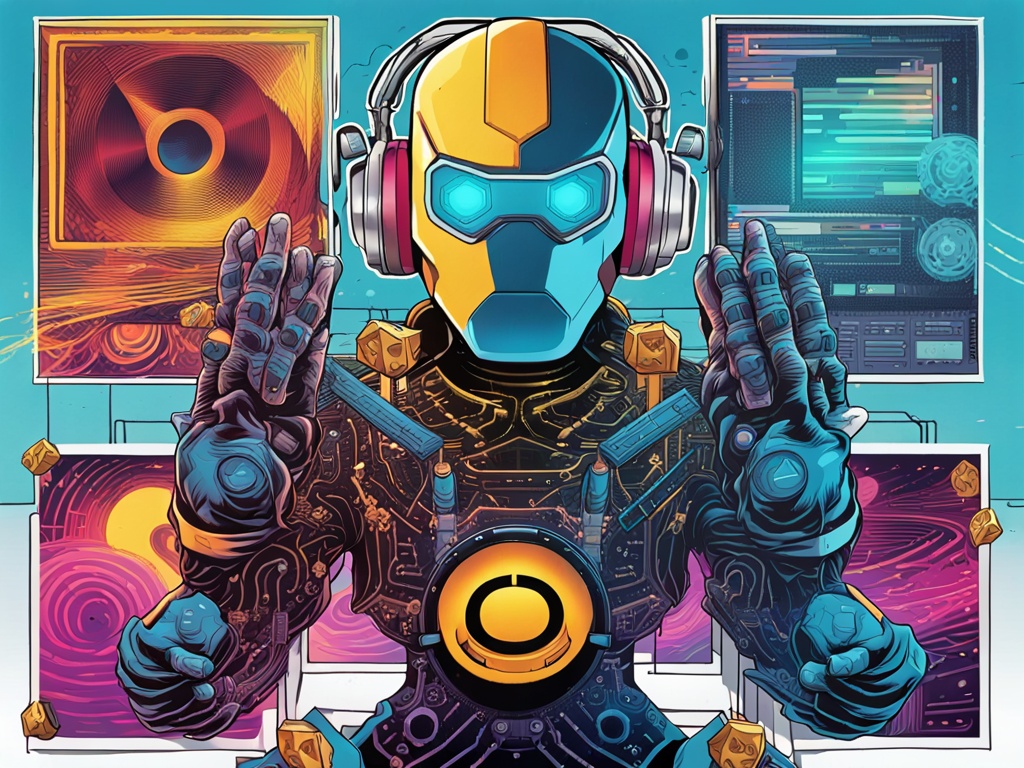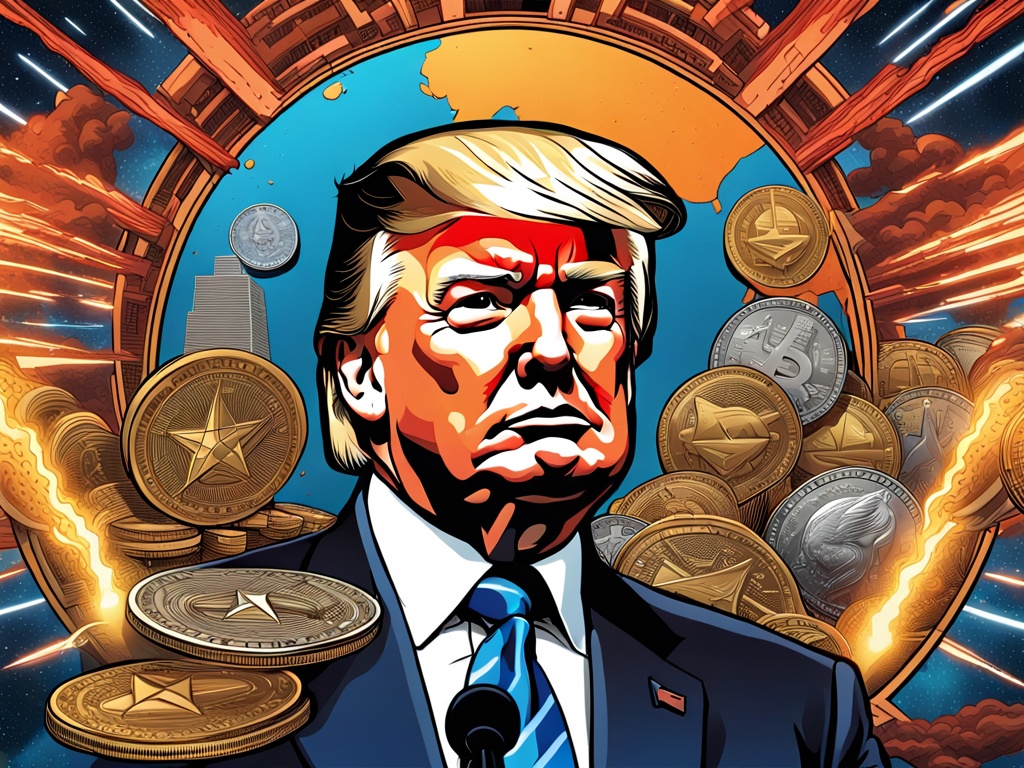Transforming the Music Industry: The Role of AI and Blockchain 🎵🔗
The music sector is witnessing a significant evolution, propelled by advancements in technology and changing tastes among consumers. For industries that have long been hindered by inefficiencies and outdated systems, the time has come for a revolutionary shift. The convergence of artificial intelligence (AI) and blockchain technology is poised to be the transformative force needed to catalyze this change.
This year, industry analysis from Goldman Sachs indicates a promising trajectory for the global music sector. Their revised forecasts suggest an increase in the compound annual growth rate (CAGR) for the period from 2024 to 2030, now projected at 7.6%. Additionally, estimates for absolute revenues in 2030 have been adjusted upwards by 12%. This favorable outlook is fueled by robust growth in live performances—projected to rise by 31%—and a 4% increase in music publishing revenues. It is anticipated that by 2024, global net music revenues will reach approximately $76.1 billion, with gross revenues climbing to about $106 billion.
Exploring Activity in Music Rights 📈🎶
The music rights domain is experiencing unprecedented levels of engagement. For example, since 2021, Blackstone has been actively acquiring music royalties assets, marking a significant milestone with a $1.47 billion deal completed in July 2024. This transaction is reflective of a rising appetite in the market for music rights, which indicates the potential this sector holds for investors.
However, with this expansion comes challenges. A primary issue lies in the insufficient ownership structure within music streaming platforms and the ongoing struggle for fair compensation for artists and rights holders. Fortunately, the integration of AI and blockchain is beginning to tackle these concerns head-on. These technologies are not only reshaping music production but also revolutionizing distribution and monetization, leading to a more equitable landscape within the industry.
AI: A Catalyst for Creative Growth 🎤🖥️
AI is transforming the music creation process, making it more accessible, efficient, and innovative. Platforms such as Mubert and Amper Music grant artists the ability to generate custom music tracks and offer valuable insights for improvement. Meanwhile, AIVA (Artificial Intelligence Virtual Artist) assists in the composition of various original music pieces. These tools extend their benefits beyond well-known artists, enabling independent creators and even casual users on social platforms to generate high-quality music.
Additionally, certain platforms like Beatoven enable artists to monetize AI training based on demo versions of their work, thereby creating new revenue sources while allowing them to maintain full rights over their creations.
Through AI, artists are afforded a collaborative creative partner that analyzes patterns, sparks new ideas, and minimizes the time needed for production. This dynamic allows musicians to explore freely and reimagine their approach to music-making.
AI’s Impact on Music Catalog Valuation 📊🎧
AI is also redefining how music catalogs are appraised. Traditionally, valuation methods often excluded artists from meaningful negotiations. By utilizing extensive datasets—including historical performance and market trends—AI delivers clearer, data-informed insights regarding a catalog’s earning potential. This transition allows not only mainstream artists, like Justin Bieber, but also independent musicians to monetize their music rights, promoting financial independence and the opportunity to invest more in their artistic endeavors.
Notably, AI’s influence on investment transparency enables fans to engage actively, co-investing in music projects and cultivating a deeper connection to the songs they cherish.
The Role of Blockchain in Music Rights Transparency 🔍💰
While AI forecasts future outcomes, blockchain ensures the integrity and fairness of financial transactions in the music industry. Currently, independent artists, who represent a vast majority of the market, face challenges in accessing royalty payments, often lacking visibility on their origins and authenticity. A prominent illustration is the recent lawsuit by Limp Bizkit against Universal Music Group, which alleges that royalty payments were obscured through intentionally manipulated software. UMG has contested these claims, stating they are speculative in nature.
Blockchain technology offers a solution by maintaining an immutable ledger for every play of a song, guaranteeing transparency and fairness in the distribution of royalties. This approach benefits artists and fosters a trustful environment between creators and financial backers.
Moreover, blockchain enables innovative engagement models where fans can finance projects, vote on track selections, or gain rewards in the form of tokens and digital assets, creating an interactive relationship between artists and audiences.
Empowering the Music Community: Artists, Investors, and Fans 🎉🎷
This year, the potential for growth in music catalog investments is substantial. The increase in catalog deals has been steady, and major players are recognizing these opportunities. Labels like Sony Music are shifting from traditional roles to actively pursuing catalog acquisitions while platforms like TikTok are evolving into ownership and management entities through the establishment of a dedicated Music Content Investment Team.
The music industry is heading towards a more interactive landscape that synergizes music streaming with social media and consumer experiences. This fusion fosters a more inclusive approach to music consumption, emphasizing collaborative participation in the creative process, powered by both AI and blockchain technology.
Hot Take: The Future is Bright for the Music Industry! ✨🎵
As AI and blockchain technologies continue to drive pivotal changes in the music industry, a more dynamic, transparent, and equitable environment is emerging. These advancements make it easier for diverse participants, whether they be artists, investors, or fans, to engage in the music ecosystem, fueling an era of unprecedented opportunities in the sector.
By addressing long-standing issues such as fair compensation and efficient rights management, the intersection of technology and music paves the way for innovative practices and enhanced value for all involved.
Goldman Sachs Global Investment Research
Blackstone Music Deal Announcement
Limp Bizkit vs Universal Music Group Lawsuit
UMG Response to Lawsuit Claims





 By
By
 By
By
 By
By
 By
By
 By
By
 By
By